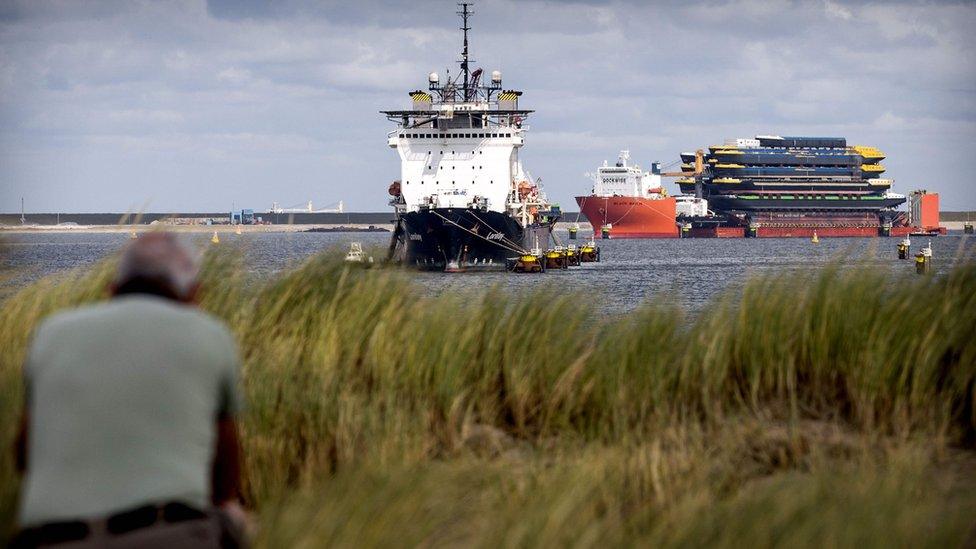Brexit: EU considers using disaster fund for no deal
- Published

The Dutch port of Rotterdam is among those that could see disruption in a no-deal Brexit
The European Commission is considering allowing EU countries to apply for cash to cope with a no-deal Brexit using a special emergency fund.
Officials are working on a plan to classify no deal as a "major disaster", a category normally used to describe destructive natural events such as earthquakes or major floods.
The move would require the approval of EU states and the European Parliament.
PM Boris Johnson says the UK must leave with or without a deal by 31 October.
In a no-deal scenario, the UK would immediately leave the European Union with no agreement about the "divorce" process.
That would mean leaving the single market and customs union - both designed to facilitate smooth trade - and institutions like the European Court of Justice and Europol, its law enforcement body, overnight.
Opponents of no deal fear it would damage UK and EU economies, lead to significant disruption to travel, and affect supplies of food, medicine and other goods. Proponents, though, argue any disruption would be short term.
Under the proposals being considered by the Commission, EU countries would be able to apply for no-deal cash using the EU's .
≥…»ÀøÏ ÷ Brussels reporter Adam Fleming said the plans would be discussed on Monday, and could be formalised at a Commission meeting due on Wednesday.
The fund, first set up after flooding in central Europe in 2002, is normally used to finance repair work caused by major natural disasters.
Since then it has been used to provide help to a number of countries coping with the aftermath of earthquakes and floods, including Italy, Germany and Austria.
Funding applications under the scheme have to be approved by EU states and the European Parliament, and can often take months to be paid out.
The incoming European Commission, led by new president Ursula von der Leyen, is due to take office on 1 November - the day after the current Brexit deadline.
The EU has already adopted no-deal contingency measures aimed at keeping basic functions operating - such as air travel, road haulage and financial services.
On Sunday, Mr Johnson's demand for the Irish border backstop plan to be scrapped as part of a new deal was rejected by the EU's lead Brexit negotiator Michel Barnier.
Mr Barnier said the plan - intended to avoid a hard border on the island of Ireland - represented the "maximum flexibility" the EU could offer.
- Published13 December 2020
- Published2 September 2019